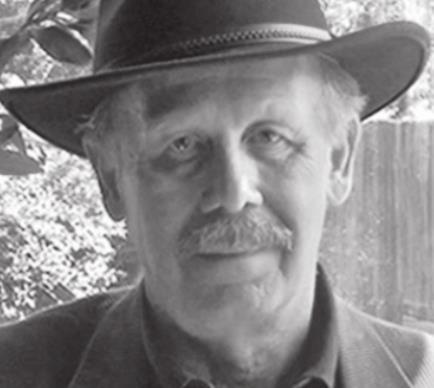“Big D,” a popular fixture on the front page of the Dallas Morning News for nearly a quarter of century, appeared in print for the last time on Nov. 13, 1975.
One winter night in 1952, Paul Crume came home from work and announced to his wife Marion, “They’ve asked me to start writing a new column.” “They” were his bosses at the Dallas newspaper, where he had worked for the past 16 years.
“What kind?” was the first question that came to mind. Her husband thought for a moment before answering, “They’re not exactly sure, but they want something that will add a personal touch to the front page.”
A couple of weeks later on Feb. 17, 1952, the 500- word feature chock-full of wit, wisdom and homespun philosophy began winning the hearts and minds of a loyal legion of readers. The Morning News got what it asked for and so much more with “Big D.”
Six year old Paul Crume left Arkansas in a covered wagon (no kidding!) with his mother, father and six siblings in 1918. They passed through the Lone Star State in a yearlong search for greener pastures before finally settling down on a small farm in the Texas Panhandle.
The closest community was Lariat, a dusty hamlet of a hundred hardy souls 84 miles northwest of Lubbock. Crume would share his fond memories of growing up “in the suburbs of Lariat” and enjoyed bringing to life the colorful characters of his childhood.
In one of his Lariat-themed columns, he reminisced about the daily mail delivery by the Santa Fe Railroad. The passenger train never came to a complete stop but slowed down just long enough for the mail bag to be “heaved into the nearby cotton field.”
“That was all for the day,” Crume wrote. “And that was good. After all that excitement, we had had about all we could take of the Santa Fe Railroad for one day.”
Since Lariat had no schools, the bright student rode the bus to Farwell, the Parmer County seat, for his education. Although college was out of the question for his cash-strapped parents, he refused to give up on his dream of attending the University of Texas in faraway Austin.
Crume washed dishes at night and weekends to pay for his tuition, books and living expenses. After his sophomore year at UT, college life got a little easier with the help of several instructors, who recognized the potential of the promising student.
Two renowned professors took the eager beaver from the Panhandle under their respective wings: J. Frank Dobie, the famous folklorist, and historian Walter Prescott Webb, author of the classics The Texas Rangers and The Great Plains. Both instilled in Crume an appreciation for the largely ignored history and culture of Texas and the American Southwest.
Webb went a step further by selecting Crume as his student grader and assistant. The modest compensation from the two positions eased the financial pressure on the struggling undergraduate and allowed him to think more about his future than where his next meal and rent money were coming from.
As graduation loomed in the spring of 1936, Professor Webb inquired about Crume’s post-college plans. He was troubled by his prize pupil’s answer that he had his heart set on finding entry-level employment with a New York City newspaper.
The last thing Walter Prescott Webb wanted to see was his protege letting his gift go to waste in the Big Apple. However, rather than try to change Crume’s mind, he took the indirect approach of suggesting that he stop by the Dallas Morning News on his way east.
Crume never suspected a thing that hot afternoon in June 1936, when he walked into the offices of the Big D daily and asked to see the editor. Webb had called ahead and advised vice-president Ted Dealey, “Sign him up, if you can. Talk him out of going to New York. We need his talent in Texas.” Dealey stuck to the script and ended a lengthy conversation with the words: “Go to work tomorrow.”
And that was what Paul Crume did. Except for four years military service in World War II, he spent his entire career with The Morning News.
He took the idea of a six days a week, front-page column and made it a mustread at breakfast tables not only in Dallas but across the Lone Star State. Growing up in Dallas in the Fifties and Sixties, I too from a young age looked forward to my daily dose of “Big D” in my morning paper.
As I close in on 2,000 columns of my own, I take pride in having never missed – knock on wood! – a deadline. But that has been on a weekly schedule not the daily demand Crume had to satisfy. He turned in 8,000 installments of “Big D” right on time though usually with only seconds to spare, a truly remarkable record.
Paul Crume kept on writing until three days before his death from cancer in November 1975. Death was the subject of his last “Big D,” an understandable choice since he could probably hear the Grim Reaper knocking on the door.
Bartee welcomes your comments and questions at barteehaile@gmail.com or P.O. Box 130011, Spring, TX 77393 and invites you to visit barteehaile.com.


